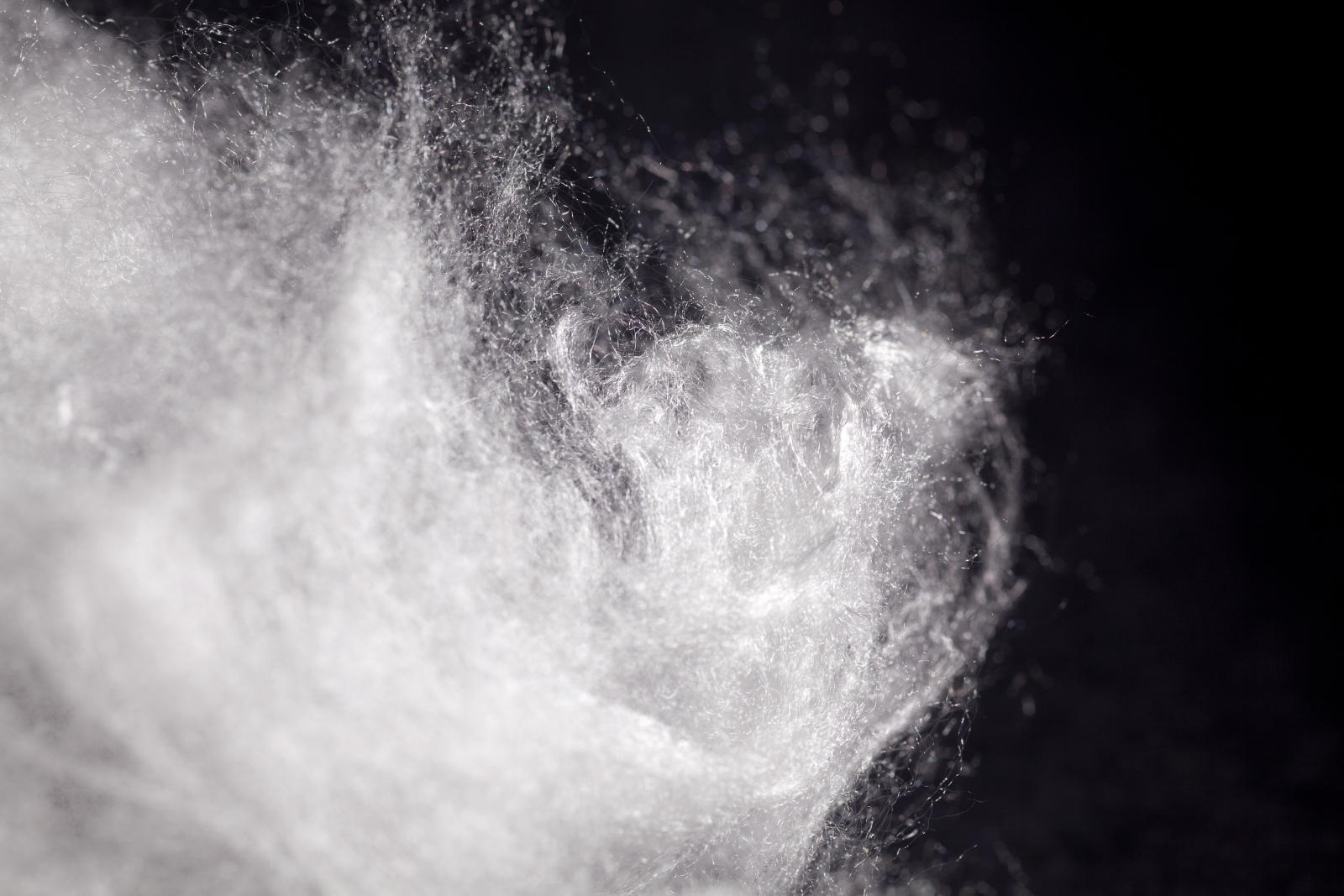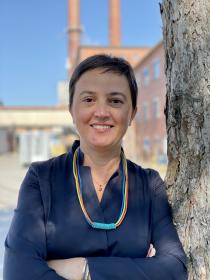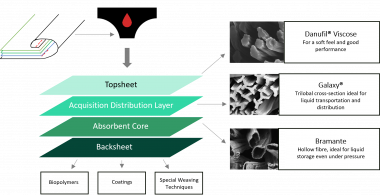Techtextil 2022: Innovation Awards for Automotive, Medicine & Apparel
After a Corona-related break of three years, the leading trade fairs Techtextil and Texprocess are once again presenting the renowned Innovation Awards. The award-winning new developments from areas such as New Products, Sustainability and Automation demonstrate: Textile innovations and technologies provide impulses for many branches of the industry and promise market and sales success far beyond their own sector. 13 winners from seven categories will be honored at a public awards ceremony at Techtextil and Texprocess on 21 June, 2022.
As is the case for many other industries, times are challenging for the textile industry: the consequences of Corona, the Ukraine war, strained supply chains, sustainability issues, rising energy prices and recruitment problems - the industry is under pressure from many sides. But more than almost any other industry, it is also very adept at meeting these challenges with new ideas, developments and business models. This year's Innovation Awards at the leading trade fairs Techtextil and Texprocess are another example of this. With their new products, materials, solutions and processes, the 13 award winners are demonstrating in an exemplary manner that textile innovations are the ideal way to create market opportunities and boost future business revenues, out of the challenges of the present.
Techtextil Innovation Award and Texprocess Innovation Award
The Techtextil and Texprocess Innovation Awards will be presented on 21 June, 2022 in Hall 9.0. Textile innovations selected by international expert juries will be awarded prizes and presented publicly on the four days of the trade fair in Hall 9.1 (Techtextil) and 9.0 (Texprocess), in some cases for the first time.
World's first: first woven heart valve without postfabrication
In the "New Product" category, the Techtextil Innovation Award goes to the Institute of Textile Machinery and High Performance Material Technology (ITM) at the Technische Universität Dresden. Together with medical product manufacturers and heart surgeons from the Cardiovascular Center Würzburg and the Universitätsklinikum Würzburg, textile researchers from the ITM have succeeded in developing the world's first woven heart valve that does not require a single seam or other joining technique. "Our new development should also help children with heart valve defects in the future by growing with the heart of the young patients - avoiding repeated surgical interventions," says Dr.-Ing. Dilbar Aibibu, research group leader for biotextiles and medical textiles at ITM. Worldwide, cardiovascular diseases are among the most common causes of death; several million people die from them every year. When patients receive heart valve replacements, artificial mechanical or biobased solutions are usually used. If ITM has its way, the woven valve, which won the Techtextil Innovation Award, should become a beneficial alternative in the future.
Reuse of waste from a natural source
In the "New Material" category, RBX Créations (France) receives the Innovation Award for a novel cellulose fiber made from hemp waste. The material, named Iroony®, was developed with regard to the following question: Hemp is now grown either to make fiber or to produce hemp oil - but could not the two be combined? RBX Créations has now succeeded in developing a process for extracting cellulose from the waste of oilseed hemp. Spun into textile fibers, it can be used to produce sustainable textiles, packaging and other "green" products. The award is given to RBX Créations for its continuous and successful efforts to convert waste from a renewable source into a valuable cellulose fiber that meets the highest sustainability standards.
Fiber shielding technology for hospitals, electric cars and server farms
The Techtextil Innovation Award in the "New Technology" category goes to Aachen-based FibreCoat GmbH and Deutsche Basalt Faser GmbH from Sangerhausen (Saxony-Anhalt) for the joint development of an aluminum-coated basalt fiber. It combines the strength of basalt with the electrical conductivity of aluminum. According to FibreCoat, electromagnetic shielding as wallpaper in buildings in hospitals or server farms, among other places, should be up to 20 times cheaper than with conventional aluminum foil thanks to the new development. Another attractive and particularly fast-growing market is shielding solutions for electric cars. Robert Brüll, CEO of FibreCoat: "For a young company like ours, winning the Techtextil Innovation Award is an important milestone. We are honored to receive this prestigious award from the independent jury of experts. In particular, the confidence of our customers and visibility gained as a result are crucial for a start-up like FibreCoat on the road to market success."
More sustainable hygiene products such as diapers
Kelheim Fibres GmbH from Kelheim in Bavaria and the Saxon Textile Research Institute (STFI) in Chemnitz receive the Techtextil Innovation Award in the "New Concept" category for the development of novel, thermally bonded nonwovens based on cellulose for the production of reusable products with high absorbency. Consumers should no longer have to choose between high-performance or environmentally friendly products. Nature and performance of hygiene products go hand in hand thanks to the innovation of Kelheim, STFI and the Berlin-based start-up SUMO. Dr. Marina Crnoja-Cosic, Director New Business Development at Kelheim Fibres: "It is a great honor and pleasure for us to receive the Techtextil Innovation Award together with our partners. We see the award not only as a distinction for the project presented, but also as recognition of our innovation strategy. After all, in dialogue with partners we can react more quickly to current trends, develop in a more targeted manner and accelerate the commercialization of innovative solutions."
Waste from the automotive industry as a resource
Another Techtextil Innovation Award in the category "New Approaches on Sustainability & Circular Economy" honors a process that uses natural leather waste from the automotive industry to produce innovative textile coatings. It was developed by CITEVE, the Technology Center for Textile and Clothing in Portugal, and partners ERT Têxtil Portugal, CeNTI and CTIC (all Portugal). After CITEVE researchers discovered that cutting operations in the automotive industry generate a large amount of natural leather classified as waste, they sought a solution to reuse it. The expert jury recognizes the development as a successful industrial symbiosis: "Waste from one industrial sector is used here as a resource in another. The work of the CITEVE researchers thus supports an important trend toward a resource-efficient, environmentally friendly and sustainable textile industry."
Compostable textile coating
The Techtextil Innovation Award in the category "New Approaches on Sustainability & Circular Economy" goes to the textile research institute Centexbel (Belgium) for a bio-based and compostable dispersion for textile coatings and printing inks. The new development does not require solvents and brings a completely new type of polymer for coatings and printing inks to the market. According to the expert jury, the innovation is an important step for the textile coating industry towards more products based on renewable resources.
Fashion from pineapple peel
The Italian company Vérabuccia is honored in the "Performance Fashion Award" category for an innovative production process for the fashion and design sector. The patented process is designed to transform fruit waste into fashion highlights. A first material is the so-called "Ananasse". According to Vérabuccia, the special feature of this is that unlike other plant leathers, which tend to imitate real animal leather, it retains the original appearance of a pineapple skin; this emphasizes the origin of the raw material. With the Techtextil Innovation Award, the jury honored the unconventional thinking of the young Italian label, whose originality proves that innovative and appealing fashion can be developed from surprising materials.
100 percent compostable binder for nonwovens
In the "New Technology" category, the company OrganoClick (Sweden) receives the Techtextil Innovation Award for the development of a 100 percent bio-based binder for nonwovens applications that is made from waste components and is therefore said to be fully compostable. The innovation is designed to replace plastic-based binders. Because nonwovens are often made from non-degradable plastics, the Swedish company specializes in developing compostable material alternatives from wheat bran, fruit or crab shells, among others. This convinced the jury of the Techtextil Innovation Awards: "OrganoClick receives the award for its efforts to find bio-based raw material alternatives to replace oil-based materials."
Formaldehyde-free & bio-based coating system
The third award in the category "New Approaches on Sustainability & Circular Economy" goes to Deutschen Institute für Textil- und Faserforschung Denkendorf (DITF) from Baden-Württemberg and the company TotalEnergies - Cray Valley (France). Together, they have developed a novel, formaldehyde-free coating system. It is based on non-toxic hydroxymethylfurfural (HMF) derived from biomass waste. These HMF-based dip formulations are capable of replacing formaldehyde-based adhesion promoters on a one-to-one basis. For background: in tires, conveyor belts or V-belts, rubber materials are reinforced by cord. The quality of such cord composite systems with high-strength fibers such as polyester, aramid or polyamide and rubber is determined by the adhesion properties of the fibers to the matrix. In the established manufacturing process, adhesion promoters made of resorcinol-formaldehyde-latex (RFL) are used. However, formaldehyde has been classified by the EU as a proven carcinogen and mutagen since 2014. The jury therefore welcomes the health and environmentally friendly new development. It contributes to a more sustainable textile industry and the reduction of harmful chemicals.
Messe Frankfurt Exhibition GmbH





